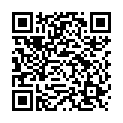|
|
|
| Module code: KIB-PTG |
|
|
3V+1S (4 hours per week) |
|
5 |
| Semester: 1 |
| Mandatory course: yes |
Language of instruction:
German |
Assessment:
Written exam
[updated 26.02.2018]
|
KIB-PTG (P222-0023) Computer Science and Communication Systems, Bachelor, ASPO 01.10.2021
, semester 1, mandatory course
KIB-PTG (P222-0023) Computer Science and Communication Systems, Bachelor, ASPO 01.10.2022
, semester 1, mandatory course
|
60 class hours (= 45 clock hours) over a 15-week period.
The total student study time is 150 hours (equivalent to 5 ECTS credits).
There are therefore 105 hours available for class preparation and follow-up work and exam preparation.
|
Recommended prerequisites (modules):
None.
|
Recommended as prerequisite for:
KIB-NRTG Introduction to Communications Engineering
[updated 18.02.2019]
|
Module coordinator:
Prof. Dr. Horst Wieker |
Lecturer:
Prof. Dr. Horst Wieker
Dipl.-Ing. Harald Krauss
[updated 28.11.2016]
|
Learning outcomes:
After successfully completing this module, students will be familiar with the physical and technical foundations of the electrical engineering processes adapted to information technology.
Students will be familiar with the basic concepts of electrical circuits (Kirchhoff´s circuit laws) and will be able to calculate voltages, currents and resistances in simple circuits. They will be able to use electrical symbols to solve tasks related to the static behavior and switch-on behavior of circuits with resistors, capacitors and inductors.
In addition, they will also be familiar with the basics of semiconductor electronics. They will be able to calculate basic circuits with diode and transistor.
In this module students will also acquire basic skills in the field of scientific work and self-organized learning.
[updated 26.02.2018]
|
Module content:
Basic terms and concepts (matter, charge, current, electric field strength, magnetic field strength, forces in the electrostatic and magnetic field, voltage, power)
Passive dipoles (resistors, capacitors, inductors),
Active dipoles (ideal voltage and power sources),
Arrow systems, nodal and mesh rules
Law of induction, magnetic resistance
P-n junction
Diode, transistor, basic circuits switch and amplifier
[updated 26.02.2018]
|
Recommended or required reading:
PAUL, Elektrotechnik für Informatiker, Teubner Verlag
OSE, Elektrotechnik für Ingenieure, Hanser Verlag
HAGMANN, Grundlagen der Elektrotechnik, AULA-Verlag
ALTMANN/SCHLAYER, Lehr- und Übungsbuch Elektrotechnik, Hanser-Verlag
[updated 26.02.2018]
|
Module offered in:
WS 2022/23,
WS 2021/22,
WS 2020/21,
WS 2019/20,
WS 2018/19,
...
|


